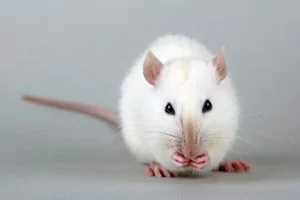Pets are loyal and amazing friends. They increase your dopamine and serotonin levels when you spend time with them and add structure to your daily routine. Pets are perfect for seniors and children alike, but people who suffer from pet dander allergies have a hard time coexisting with their furry companions. The incessant sneezing, skin irritation, watery eyes, congestion and asthma attacks whenever an animal walks into the room can easily remove the benefits of pet ownership.
Allergic reactions are triggered by pet dander, which consists of tiny flecks of skin shed by dogs, cats, birds, rodents, and other feathered or furry animals. Your allergies might also be a reaction to the proteins found in saliva and other excretions from your pet.
Unfortunately, your cat might be the biggest culprit when it comes to protein allergy reactions. Even worse, cat dander is so small and persistent that it’s difficult to remove. Steroid shots and medications are your best bets when it comes to dealing with pet allergies, but you might be interested in alternative solutions. The following tips will help you to minimize allergens and reduce the disadvantages of keeping your pet around. Also, be sure to consult your doctor if you have any allergy symptoms.
1. Keep your pet out of the bedroom
Consider making your bedroom a pet-free haven and you’ll reduce the severity of your allergies. This will lower the risk of allergens getting on your pillows and sheets, which could lead to nighttime sneezing and sniffling. You might also want to change to allergen resistant bedding for further protection.
2. Consider a HEPA filter
HEPA filters are specially designed to suck out microscopic and allergy causing pollutants from your home’s environment. It will remove pollen, dust mists, and pet dander from the air you breathe. The filter easily removes pet dander, which is a significant contributor to your pet allergies. The efficient, stand-alone systems are more effective that whole-house systems and certainly more reliable than de-ionizers and purifiers, which release ozone gas and aggravate your allergies.
3. Regular housecleaning is essential
Carpets are not recommended if you suffer from severe allergies, but if you cannot change your carpeted floors, you should vacuum frequently to reduce dander in the air. Changing your furnace filters will also help to keep the air clean. Some other tasks include: shampooing rugs regularly, frequent dusting, wiping down walls and staircases, and changing pet bedding at least once a month. If you could afford it, you should switch to hardwood flooring and reduce the amount of upholstered furniture in your home.
4. Wash your hands
Washing your hands and face frequently is a lot more effective than giving your pet constant baths. Bathing your pet will reduce the amount of shedding and allergens, but the results will only last for a couple days – and your cat may not be happy. So instead of torturing your pet, wash your hands and face more often to reduce your allergies.
More: 10 Easy Ways to Make Your Pet Green
5. Use medication when needed
Antihistamines and other over-the-counter medications will relieve your mild allergy symptoms, such as watery eyes, runny nose, wheezing, tightness in your chest and nasal congestion. Talk to your doctor to find the medication that is right for you.
6. Get allergy shots
If there’s no parting from your furry companion, you might want to consider getting an allergy shot. Also known as allergy vaccines, these will help build your immunity to allergens, which will reduce symptoms when exposed. Allergy shots take time to work and are not as simple as taking a single shot. Often, you might be required to take weekly shots for an entire year before switching to monthly shots. With time, you’ll no longer need the shots as your allergy symptoms will be non-existent. See your doctor to find out more information.
7. Learn the basics
Even if you cleaned your home from top to bottom, you might still be exposed to pet dander and suffer from allergies. Pet allergens are difficult to wash or scrub away, so you could easily carry them on your clothing and in your hair. Therefore, don’t be surprised if you’re sneezing and sniffling in places where there are no pets, such as in the workplace, in your car, and in your pet-free home.
8. Get a different pet
If all else fails, you might have to part ways with your pet. In that case, you’ll need to consider a different type of animal; preferably one without feathers or fur. Lizards, fishes, snakes, turtles and geckos are a few good options.
Don’t give up and don’t lose hope. If you love your furry friend, you might just need to make a few lifestyle changes to experience the joys of pet ownership. Consult your doctor regularly, wash your hands and clean your house each day to avoid any pet allergies.








Comments